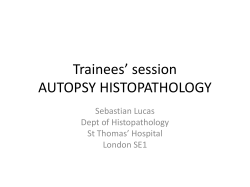
Proctalgia Fugax
Proctalgia Fugax Pain in the anus or rectum is very common. Most anorectal pain is caused by easily identified problems such as hemorrhoids, fissures, abscesses, inflammatory conditions, prostatitis, cystitis, or cancer. Occasionally, pain may be recurrent and persistent but no clear cause can be found. This is called “functional” pain. Most functional anorectal pain can be categorized as either proctalgia fugax or levator ani syndrome. As many as 10-20% of people may experience this type of pain at one time or another, but only a small percentage seek medical care. It commonly starts in young or middle aged adults. It may last for a short time or may recur over many years. It may also lessen or disappear with advancing age. It is not clear what actually causes the pain. It is thought that there may be spasm of the rectal, anal or pelvic floor muscles or irritation of the related nerves. Often, no specific triggers such as constipation, diarrhea or physical activity can be found. Although psychological conditions including anxiety, depression and stress have been associated with the onset of these problems, it is not clear whether they actually can cause anorectal pain. The diagnosis of one of these disorders is made primarily by a history of typical symptoms. Although most physical exams are normal, an area of tenderness may be felt. There are no specific tests that establish the diagnosis. Before one of these diagnoses is made, exams of the area are performed to rule out the other causes of pain. Side view: Female bladder and related structures Proctalgia Fugax The name proctalgia fugax comes from “procto” meaning rectum, “algia” meaning pain, and “fugax” meaning fleeting in Greek. The pain of proctalgia fugax is typically sharp, sudden and, at times, severe. It may last from seconds to minutes. It is often described as stabbing, spasms, cramping or burning. It may occur at night, waking the person from sleep. Attacks are episodic and seem to occur in clusters. Months may pass between episodes, and then the pain may recur multiple days in a row. Typically, there is no pain in between attacks. Because the pain is so short-lived, medications are generally useful for the acute attacks. If the attacks last longer than several minutes or if the clusters are prolonged, treatment with medications such as antispasmodics, muscle relaxants or pain relievers (taken either under the tongue, by mouth or as suppositories) may be tried. Warm tub baths, warm (not hot) heating pads or ice packs may be used. POINTS TO REMEMBER: Make the correct diagnosis Rule out other causes Education and reassurance are important Treat the symptoms Patient information materials developed in the Section of Colon and Rectal Surgery at Rush University Medical Center. The information contained in this brochure is believed to be accurate; however, questions about your individual health should be referred to your physician. July 2013 - No. 040a v8.3
© Copyright 2025





















